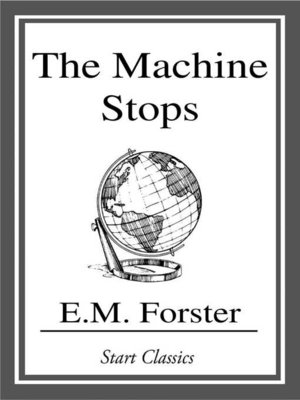

7 While facing unfamiliar dangers on Rampole Island with its cannibals, Mr. After World War II, much disaster fiction in English began with one catastrophic event, nuclear war, and pictured youthful survivors, say in the novel Lord of the Flies 6 or the television series The 100. 3 Forster stands apart from most of his British contemporaries, who wrote about disaster in terms of single incidents like shipwreck, overcome by a resourceful individual (like the Honorable Crichton 4) often with whimsical humour (like Mr. 2 In particular, I was puzzled by the lack of involvement by most adults in seeking to prevent or mitigate the impact of specific Global changes to our climate. I revisited this story not because I was interested in online communication, but because I have a long-standing interest in emergency planning. ‘You mustn't say anything against the Machine. Oh, hush!' said his Mother, vaguely shocked. ‘I want to speak to you not through the wearisome Machine. I want to see you not through the Machine', said Kuno. Vashti watched his face in the blue plate.īut I can see you!' she exclaimed.

The story begins on the day Kuno unexpectedly messages his mother. Subsequently, Kuno was removed by the Machine's protocols to live on the other side of the World. She last visited her biological son Kuno as an infant in a public nursery. Vashti believes contact with Nature is ‘contrary to the spirit of the age’: only dust and mud. The central character Vashti is proud to have thousands of ‘friends’, in the sense we would call Facebook Friends today, but has no intimate human relationships. There is mass transport underground by train or overground by airship, but people mainly sit by themselves deep in the Earth composing and broadcasting their (shallow) streams of thought into long tweets called Lectures. They have constant electronic communication that resembles the Internet and Skype and can order from the equivalent of Amazon all the supplies they desire. 1 The story is usually known for Forster's view of a future where humanity is totally dependent on advanced technology (collectively called ‘the Machine’) and living isolated in comfortable ‘cells’ resembling a worldwide beehive. Forster composed his prophetic story The Machine Stops, which became better known through an edition printed after the Great War.


 0 kommentar(er)
0 kommentar(er)
